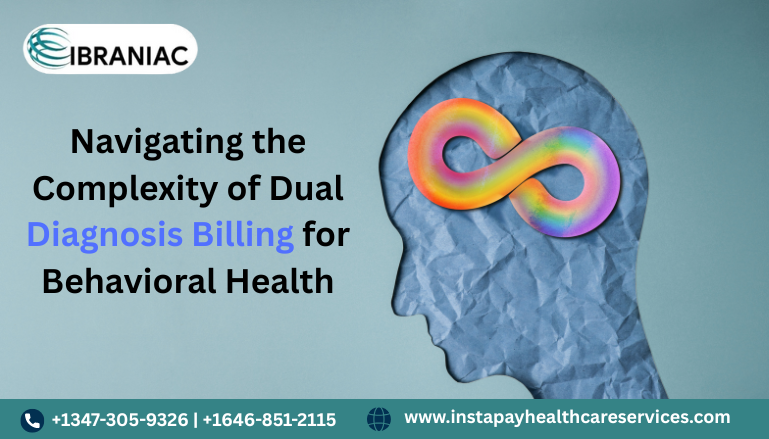
Navigating the Complexity of Dual Diagnosis Billing for Behavioral Health
In the world of behavioral health, providing comprehensive care often means addressing more than just one condition. Many patients experience both a mental health disorder and a substance use disorder simultaneously, a situation known as dual diagnosis. While treatment for dual diagnosis in behavioral health is critical to patient outcomes, billing for these services is notoriously complex.
At Instapay Healthcare Services, we understand the challenges providers face with dual diagnosis billing, and we’re here to help simplify the process so you can focus on what matters most: delivering quality care.
What is Dual Diagnosis in Behavioral Health?
Dual diagnosis, also referred to as co-occurring disorders, involves treating a patient for both a mental illness and a substance use disorder. For example, a patient may struggle with depression and opioid addiction, or anxiety alongside alcohol dependency. Treating both conditions together is vital, as they often interact and influence one another.
This integrated treatment approach is common in behavioral health settings, but it brings with it a unique set of billing and coding challenges.
Why Is Dual Diagnosis Billing So Complicated?
There are several reasons why behavioral health billing for dual diagnosis can be difficult:
1. Multiple Diagnoses and CPT Codes
Billing for dual diagnosis often requires the use of multiple diagnosis codes and procedure codes (CPT codes). However, not all payers reimburse for both diagnoses, and some have strict rules about which codes can be billed together. This can lead to denied claims if not handled correctly.
2. Coverage Limitations
Insurance plans, including Medicaid and Medicare, may have different coverage rules for mental health and substance use treatment. Some may limit the number of visits, require prior authorization, or refuse to cover certain services altogether, especially when both conditions are treated simultaneously.
3. Documentation Requirements
Payers require detailed clinical documentation to justify treatment for dual diagnosis in behavioral health. This includes individualized treatment plans, progress notes, and evidence that both conditions are being addressed in an integrated manner.
4. Provider Credentialing
Not all behavioral health providers are credentialed to treat both conditions. This can lead to billing issues if, for example, a provider is only approved to bill for mental health services but not for substance use disorder treatment.
4. Provider Credentialing
Not all behavioral health providers are credentialed to treat both conditions. This can lead to billing issues if, for example, a provider is only approved to bill for mental health services but not for substance use disorder treatment.
Best Practices for Dual Diagnosis Billing
To avoid common pitfalls in dual diagnosis billing, behavioral health providers can take several proactive steps:
1. Use Accurate and Specific Codes
Always use the most specific ICD-10 diagnosis codes available and ensure they reflect both the mental health and substance use disorders being treated.
2. Know Your Payers’ Policies
Insurance companies have different rules for behavioral health billing, especially for dual diagnosis. Understand what each payer requires for reimbursement, including documentation, pre-authorization, and covered CPT codes.
3. Improve Clinical Documentation
Ensure that documentation clearly shows how both conditions are being treated and how they impact each other. Integrated treatment plans are key for justifying the billing of multiple services.
4. Work with a Specialized Billing Partner
Because of the complexity, working with a billing service experienced in behavioral health billing can save time, reduce denials, and improve cash flow. At Instapay Healthcare Services, our team specializes in dual diagnosis billing and understands the nuances of payer policies across the United States.
How Instapay Healthcare Services Can Help
We know the ins and outs of dual diagnosis in behavioral health and what it takes to get your claims paid on time and in full. Our billing experts:
- Review and validate your documentation
- Ensure correct code usage
- Manage authorizations and claims submissions
- Appeal denied claims efficiently
- Provide transparent reporting and analytics
By partnering with Instapay, you reduce administrative burdens and increase revenue, allowing your clinical team to focus on delivering care, not chasing payments.
Final Thoughts
Treating patients with dual diagnosis is essential, but billing for it shouldn’t be a barrier. With expert support and a strategic approach, dual diagnosis billing becomes more manageable and financially viable for behavioral health practices.
Need help with behavioral health billing? Contact Instapay Healthcare Services today and let us help you navigate the complexities of dual diagnosis billing with confidence.




